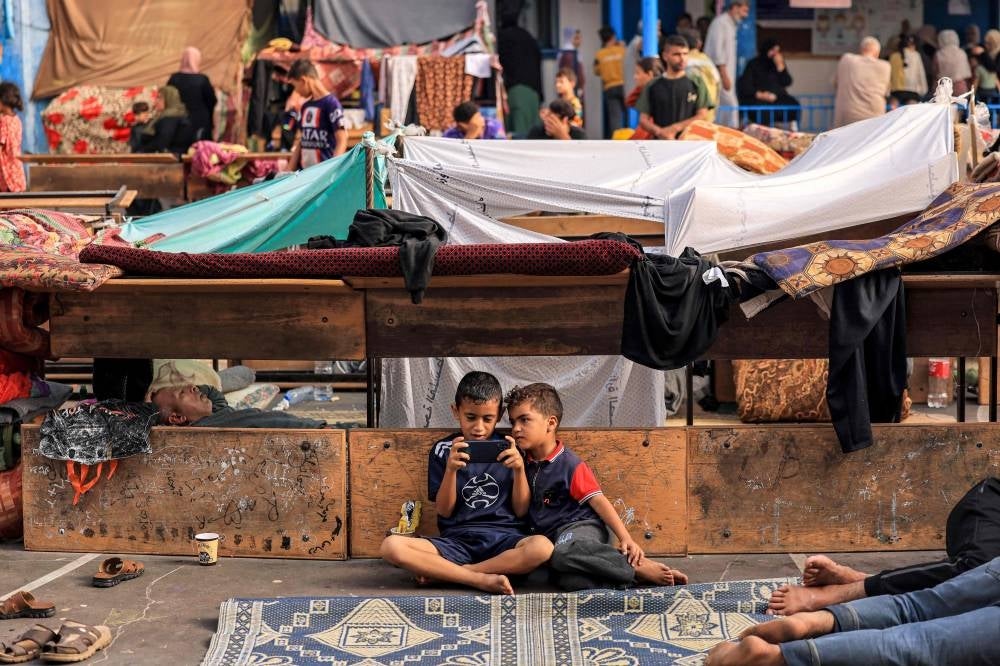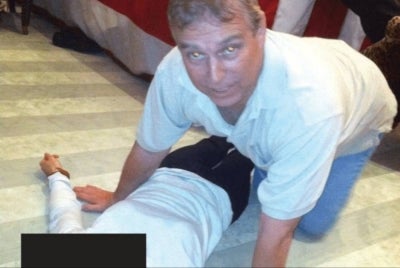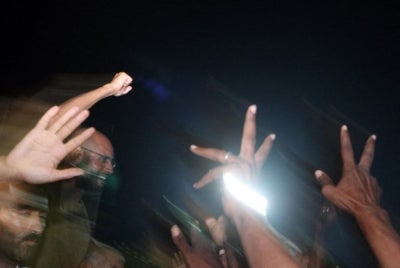UN warns Gaza fuel shortage will stop aid work by end of day

GAZA - The main UN aid agency in besieged Gaza warned it will have to stop operations by the end of Wednesday because it is running out of fuel as Hamas said the death toll from Israeli strikes had surged by more than 700 in a single day.
Alarm has grown about the spiralling humanitarian crisis in the heavily bombarded Gaza Strip where one doctor said he was forced to perform emergency surgery on the wounded without anaesthetic.
Israel has cut off impoverished Gaza's usual water, food and other supplies, and fewer than 70 relief trucks have entered since the war started -- "a drop of aid in an ocean of need", warned UN chief Antonio Guterres.
Inside the battered Palestinian territory, Abu Ali Zaarab, whose family house in Rafah was bombed, charged angrily that "they're not waging war on Hamas, they're waging war on children... It's a massacre."
Tempers flared earlier at the United Nations where Guterres decried the "epic suffering" in Gaza and the "collective punishment" of its 2.4 million people, drawing a furious response from Israel.
"Mr secretary-general, in what world do you live?" replied an infuriated Israeli Foreign Minister Eli Cohen, who recounted graphic accounts of civilians including young children killed in the deadliest single attack in Israeli history.
Israel's ambassador to the United Nations, Gilad Erdan, called on Guterres to resign, writing on X, formerly Twitter, that the UN chief had "expressed an understanding for terrorism and murder".
US President Joe Biden -- who has strongly backed Israel's war after what he called the "barbaric" Hamas "attacks", but also brokered the entry of relief trucks via Egypt -- shared the concern that the aid lifeline is "not fast enough".
US Secretary of State Antony Blinken said "food, water, medicine and other essential humanitarian assistance must be able to flow into Gaza" and that "humanitarian pauses must be considered for these purposes".
As the Gaza war has raged, violence has also risen sharply in the occupied West Bank, where health officials said more than 100 Palestinians had been killed, mostly in raids by Israeli troops or in clashes with Israeli settlers.
'This is a tragedy'
On the 19th day of Israeli air and artillery strikes and a near-total land, sea and air blockade of Gaza, the UN agency for Palestinian refugees UNRWA warned operations are at breaking point.
"If we do not get fuel urgently, we will be forced to halt our operations in the Gaza Strip," said the agency which provides aid to 600,000 displaced in Gaza, where many families have slept in the open.
Israel has refused to allow fuel shipments into Gaza, fearing Hamas will use it for weapons and explosives and accusing the group of stockpiling supplies in large tanks.
Aid groups have warned that more people will die if medical equipment, water desalination plants and ambulances stop running in Gaza, where the only power plant went offline weeks ago.
Patients are already being treated on the floors of hospitals overwhelmed with thousands wounded by bombing. The Red Cross has warned that hospitals, once the generators stop running, "turn into morgues".
"We performed a number of surgeries on the wounded without anaesthetic," said Ahmad Abdul Hadi, an orthopaedic surgeon working in the emergency room of Nasser hospital, Khan Yunis.
"It's tough and painful, but with the lack of resources, what can we do?" Aid agencies report that emergency shelters and tent cities are heaving under the weight of 1.4 million displaced -- more than half the population of the 40-kilometre (25-mile) long coastal strip.
Air strikes have kept hitting Gaza, where Israel says it is targeting Hamas sites, including tunnels and munitions depots, but where many residential buildings have been reduced to rubble.
Amine Abu Jazar, from Rafah, recounted how "at midnight, while we were sleeping, we suddenly felt shrapnel and rocks falling on us.
"We already have injured and martyrs among us, this is a tragedy. There's not even any electricity to see each other, the dead or the injured."
'Anxious world'
The Gaza war has sparked fears of a regional conflagration if it draws in more of Israels' enemies -- especially Iran-backed groups such as Lebanon's Hezbollah which has already traded deadly cross-border fire with Israel.
Israeli strikes also killed eight soldiers early Wednesday in the south of Syria, another Iran ally, the defence ministry in Damascus said. The Israeli army said it was in response to earlier rocket fire.
Israel also bombed Syria's Aleppo airport for a fourth time in two weeks, the defence ministry said.
Hezbollah's leader met with Hamas and Palestinian Islamic Jihad senior representatives in Beirut Wednesday to discuss how "to achieve real victory... in Gaza and Palestine" and stop Israel's "brutal aggression", a statement said.
French President Emmanuel Macron -- the latest Western leader in the region for crisis diplomacy -- headed to Egypt after earlier stops in Israel, the Palestinian territories and Jordan.
Turkish President Recep Tayyip Erdogan said he was cancelling plans to visit Israel because of its "inhumane" war.
Israel has meanwhile continued to mass tens of thousands of troops outside Gaza ahead of a ground offensive that has been anticipated for more than two weeks.
Military planners expect difficult urban combat in an area latticed by tunnels. The risk is heightened by the presence of the hostages, four of whom have been released after mediation involving Qatar and Egypt.
The devastating war is already impacting regional economies by deterring investment and tourism and driving up insurance costs, warned International Monetary Fund chief Kristalina Georgieva.
In Egypt, Lebanon and Jordan "the channels of impact are already visible", she told a Saudi investor forum. "What we see is more jitters in what has already been an anxious world." - AFP
Download Sinar Daily application.Click Here!














